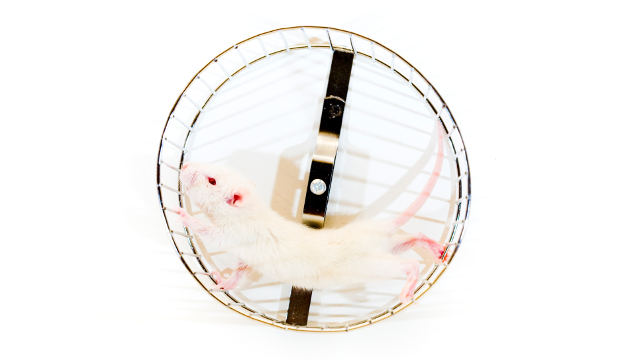 ISTOCK, ALUXUMMale rats with running wheels in their cages from a young age demonstrate improved performance on a memory task as adults, according to a study published today (August 14) in eNeuro.
ISTOCK, ALUXUMMale rats with running wheels in their cages from a young age demonstrate improved performance on a memory task as adults, according to a study published today (August 14) in eNeuro.
Specifically, rats that had access to running wheels for six weeks starting at one month of age were better than their more-sedentary counterparts at remembering a box two weeks after they’d been taught to associate it with an electric shock. While the control rats froze—a classic fear response—the same proportion of times regardless of the box type or setting, the running rats froze much more often when placed in the original box.
“This is an animal study, but it indicates that physical activity at a young age is very important—not just for development, but for the whole lifelong trajectory of cognitive development during ageing,” Martin Wojtowicz of the University of Toronto in Canada tells New Scientist. (The caveat that this is an animal study is ...




















